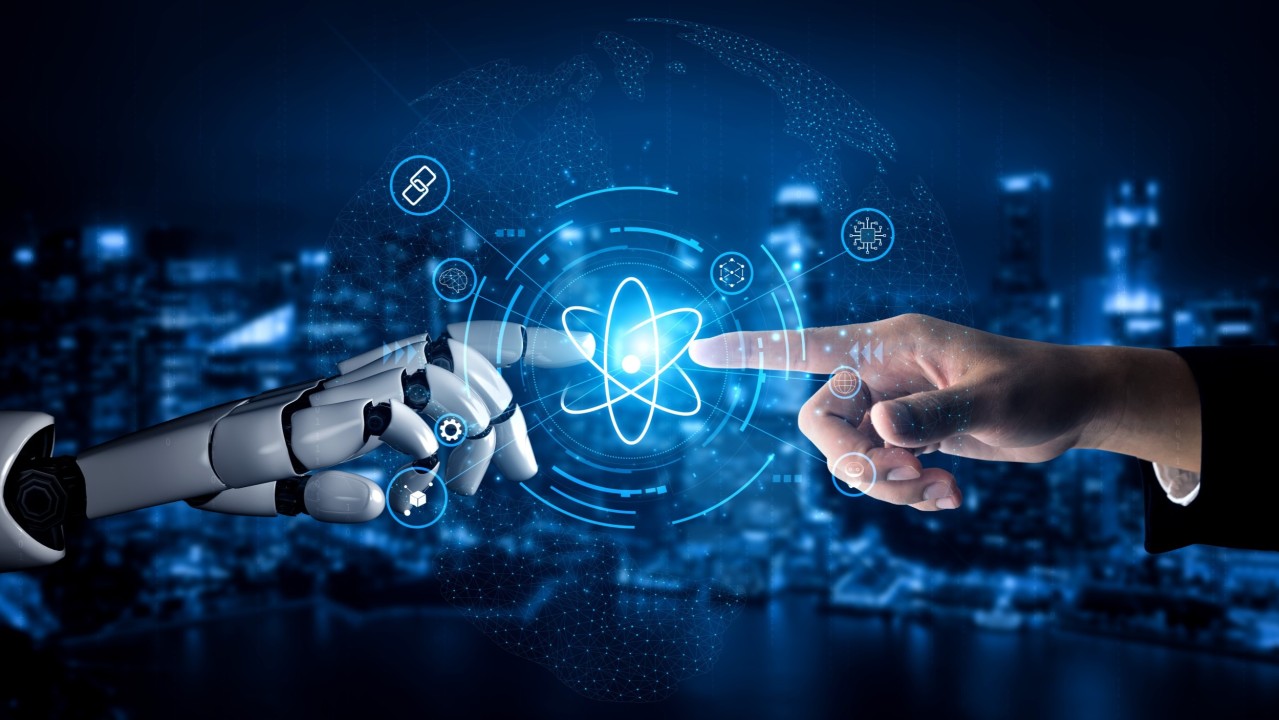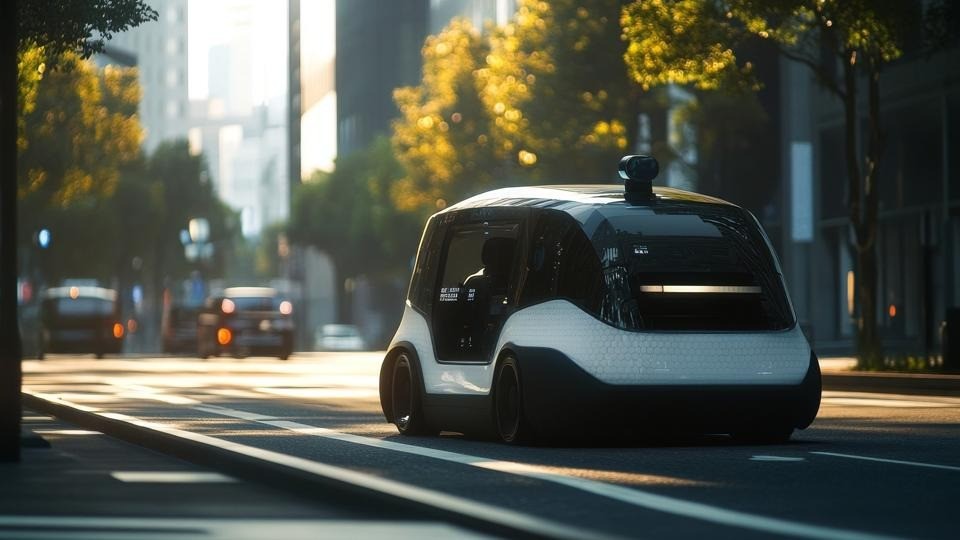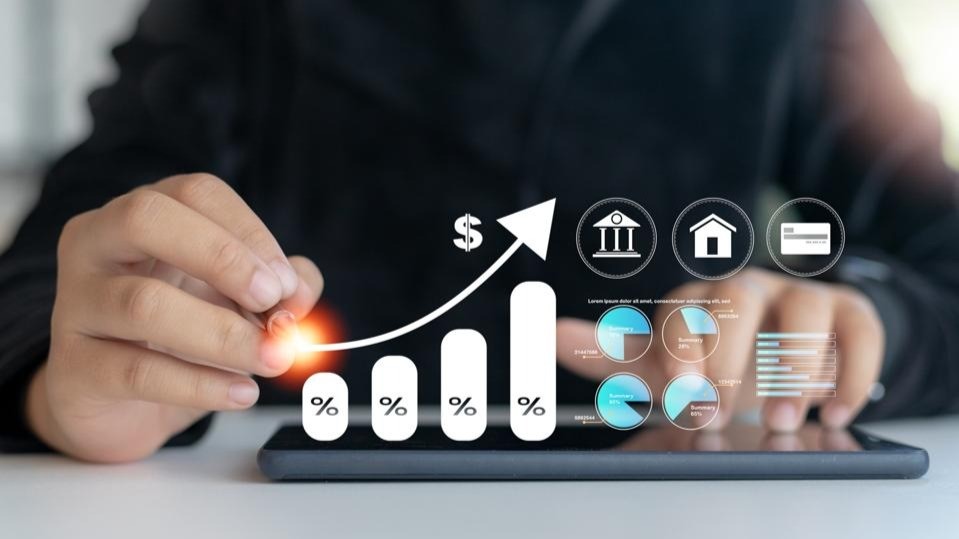Kroger: How This U.S. Retail Giant Is Using AI And Robots To Prepare For The 4th Industrial Revolution
13 July 2021
Kroger: How This U.S. Retail Giant Is Using AI And Robots To Prepare For The 4th Industrial Revolution
Kroger: How This U.S. Retail Giant Is Using AI And Robots To Prepare For The 4th Industrial Revolution
Kroger, one of America’s largest grocery chains, has decided to embrace technology to help it survive and thrive in the 4th industrial revolution. With 2,782 grocery stores under nearly two dozen names in 35 states, Kroger plans to leverage its data, shopper insights and scale to help it remain a leader in the marketplace of the future. According to a study by the Food Marketing Institute, online grocery is expected to account for 20% of all grocery retail by 2022 and reach $100 billion in consumer sales, so Kroger and its competitors are smart to figure out ways to use technology to their advantage.

In the fall of 2017, Kroger unveiled an audacious three-year $9 billion plan called Restock Kroger with the goal to build out its e-commerce, digital and omnichannel businesses and redefine the customer experience. The grocer already delivers 3 billion personalised recommendations each year, but they will enhance the personalization efforts to “create different experiences for customers.” Not only will shoppers receive useful content digitally, but also “inspiration” through product-related content and recipes. The expansion of Kroger’s Scan, Bag, Go pilot programme that allows shoppers to scan products as they shop with their smartphone is also part of the Restock Kroger initiative. After being tested in 20 stores, it should be unveiled to 400 stores by the end of 2018. Additional investment in Internet of Things (IoT) sensors, machine learning, and artificial intelligence will be made to increase the efficiency of Kroger’s operations.
Delivery by autonomous vehicles
Today, we can get groceries delivered, but Kroger is testing the delivery of the future—grocery delivery by an autonomous vehicle. Kroger partnered with Nuro, a Silicon Valley company that specialises in autonomous vehicles for delivery, on its pilot programme. Customers can use Kroger’s ClickList ordering system and Nuro’s.
Automated warehouses
A partnership between Kroger and British online-only grocer Ocado is expected to help Kroger automate its warehouses and use artificial intelligence to bolster its bottom line. Ocado claims to have the world’s most sophisticated automated grocery warehouses and has worked with Uber and Instacart to test delivery options, and it’s this know-how that Kroger aims to leverage with its investment. The companies announced they would open three new warehouses that Ocado will operate followed by another 17 in the next three years. Ocado’s warehouses are run by robots that are powered by machine learning algorithms to navigate around the warehouse and pick products for orders. With this investment and access to Ocado’s technology, Kroger will get products to stores more efficiently.
Marketing gets a boost from analytics
Kroger’s in-house analytics firm 84.51 deployed Kroger Precision Marketing that uses customer purchase data from Kroger’s 60 million shopper households to launch marketing campaigns across a digital spectrum. This helps enhance personalization for customers, but also allows product manufacturers excellent opportunities to market to their ideal customers on Kroger. Com, branded digital media and the MyMagazine Sharing Network.
Machine learning
84.51 has made it a priority to enable and embed machine learning into Kroger’s operations where a “machine learning machine” can build and deploy a lot of models with very little human intervention in a project called Embedded Machine Learning. With a mission to “enable, empower and engage” machine learning within the organisation, this was a sophisticated approach to machine learning with Solution Engineering, Model Development and Model Deployment as three phases to machine learning methodology.
Smart shelves
When a Kroger customer walks down the aisle with the Kroger app open, sensors identify the shopper and provide personal pricing and highlight products the customer might be interested in via smart shelves technology.
With this commitment to artificial intelligence, machine learning, and smart technology, Kroger seems on the right track to staying competitive for the 4th industrial revolution.
Related Articles
The Quantum Revolution Is Here, And It’s About More Than Just Computing
By now, “smart” versions exist of just about every home appliance, gadget and gizmos we can think of. However, manufacturers continue[...]
Flying Taxis And Self-Driving Trucks Arrive In 2026: 6 Transport Trends To Watch
By now, “smart” versions exist of just about every home appliance, gadget and gizmos we can think of. However, manufacturers continue[...]
Technology in Action: My Key Takeaways on How AI and Quantum Are Accelerating Global Transformation
By now, “smart” versions exist of just about every home appliance, gadget and gizmos we can think of. However, manufacturers continue[...]
The 10 Biggest Consumer Technology Trends Of 2026
By now, “smart” versions exist of just about every home appliance, gadget and gizmos we can think of. However, manufacturers continue[...]
The 7 Banking And Fintech Trends That Will Define 2026
By now, “smart” versions exist of just about every home appliance, gadget and gizmos we can think of. However, manufacturers continue[...]
The 8 Biggest Healthcare Technology Trends To Watch In 2026
By now, “smart” versions exist of just about every home appliance, gadget and gizmos we can think of. However, manufacturers continue[...]
Sign up to Stay in Touch!
Bernard Marr is a world-renowned futurist, influencer and thought leader in the fields of business and technology, with a passion for using technology for the good of humanity.
He is a best-selling author of over 20 books, writes a regular column for Forbes and advises and coaches many of the world’s best-known organisations.
He has a combined following of 4 million people across his social media channels and newsletters and was ranked by LinkedIn as one of the top 5 business influencers in the world.
Bernard’s latest book is ‘Generative AI in Practice’.










Social Media